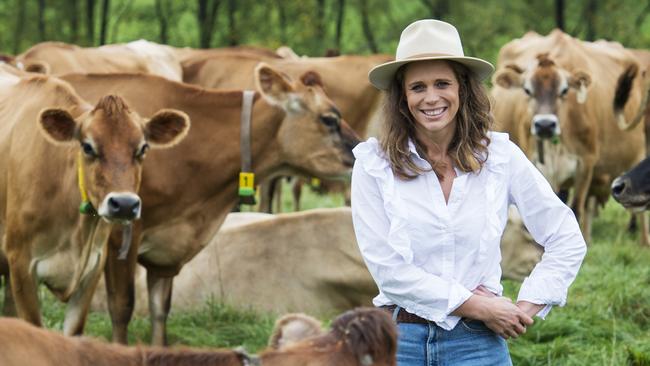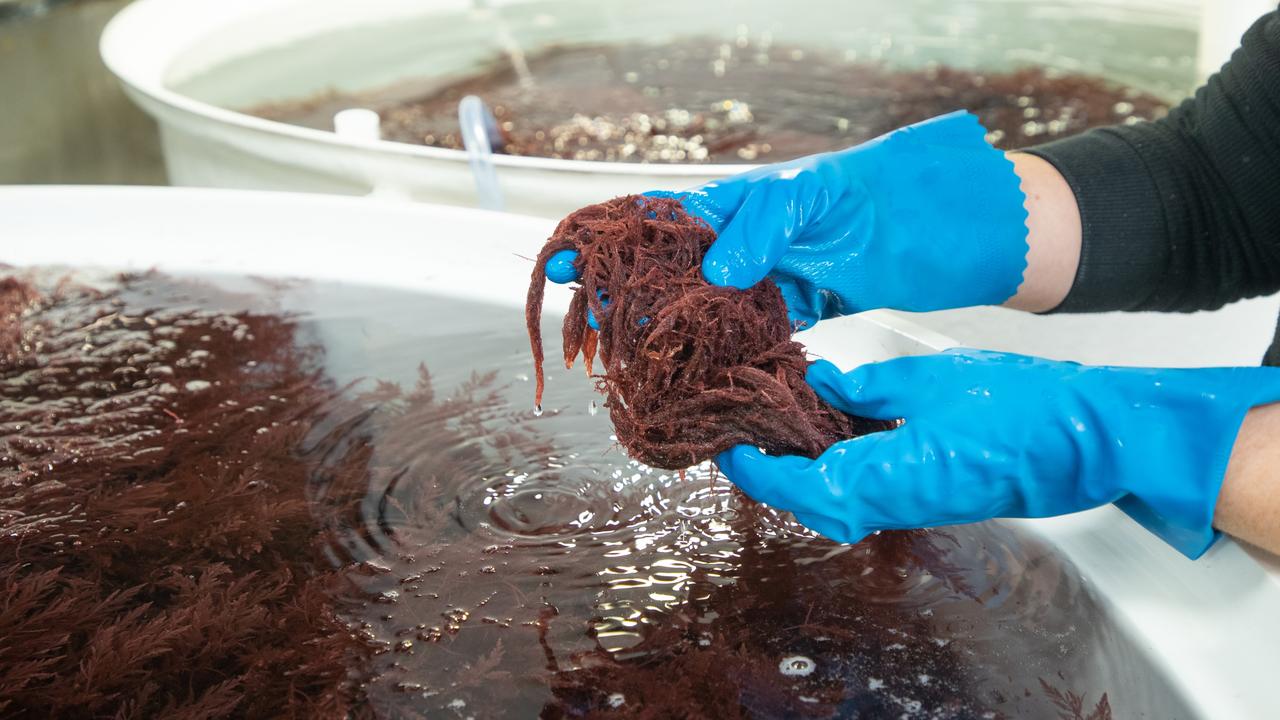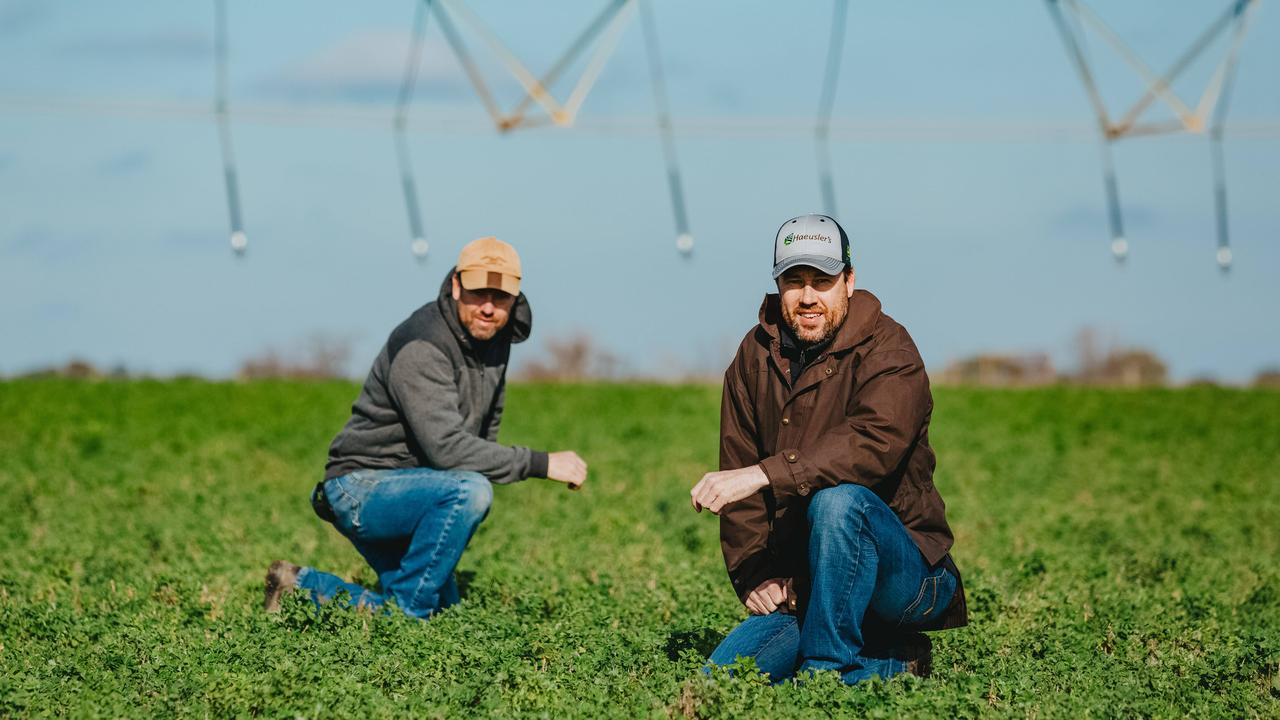Optimist Sallie Jones leads Gippsland Jersey expansion
Milk price crash, raging bushfires, global pandemic – the type of crisis is not that important to Gippsland Jersey’s Sallie Jones; she conquers them all with optimism.
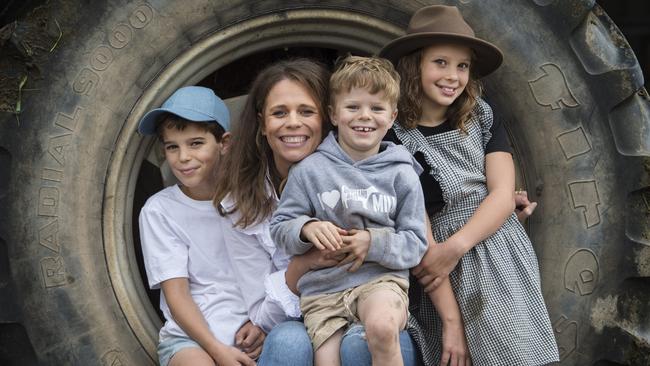
Read Farm magazine, exactly as it was printed
- Why it pays to subscribe to The Weekly Times+
LIKE so many farmers, Gippsland’s Sallie Jones has been hit with successive calamities.
The dairy milk price crisis merged into drought, which was followed by this summer’s bushfires – with the fire front 7km from the family’s Lakes Entrance property.
Then, of course, came coronavirus.
But perhaps unlike some farmers, Sallie is able to find opportunity in adversity.
“A lot of life is about how you respond,” says Sallie, who aside from being a dairy farmer, is also a mental health advocate after the death of her father by suicide.
“We can’t control what goes on around us, but we can control how we respond.
“Also, it’s unbelievable how in each of these farm crises it seemed the worst at the time, but worked out for the best.
“I find there’s generally a silver lining that emerges.”
On the back of the dairy crisis – when the price paid to farmers plummeted – Sallie and business partner Steve Ronalds created Gippsland Jersey in 2016, a business that buys milk from farmers, processes it and sells bottled milk under the brand.
During the past summer, Sallie and Steve (who are family friends) were scheduled to officially open their new processing factory on Sallie’s 380-hectare family farm at Lakes Entrance, at the same time as two fire fronts threatened to wipe out the factory, which had cost $500,000 to build, including $100,000 from crowdfunding.
“For two days we camped out in the factory in full firefighting gear, with hoses, generators and sprinklers on the top of the factory,” the 39-year-old mother-of-three recalls.
“The sky glowed red, it was so hot, the smell was strong and we knew insurance wouldn’t rebuild it if we lost it. We had worked so hard from a zero budget to make it happen, we weren’t going to let it burn down.”
Thankfully a wind change saved the factory.
Sallie says the bushfires caused a six-week delay in opening the factory, which cost them financially, but ultimately was a “blessing”.
“Because if we had been processing, the smoke and ash would have been a huge sanitation problem,” she says.
With the factory finally open in February, Gippsland Jersey then faced coronavirus, immediately losing about a quarter of milk sales through the closure of cafes and restaurants.
“We had to diversify quickly,” Sallie says.
“We became kosher certified to access a new network of people and through social media posts we had a lot of demand for home-delivered milk, and so I quickly had to figure out the logistics of how to do that.
“So we’re now delivering to thousands of home customers, through Melbourne, Gippsland and the Mornington Peninsula. We’ve been overwhelmed by the support.”
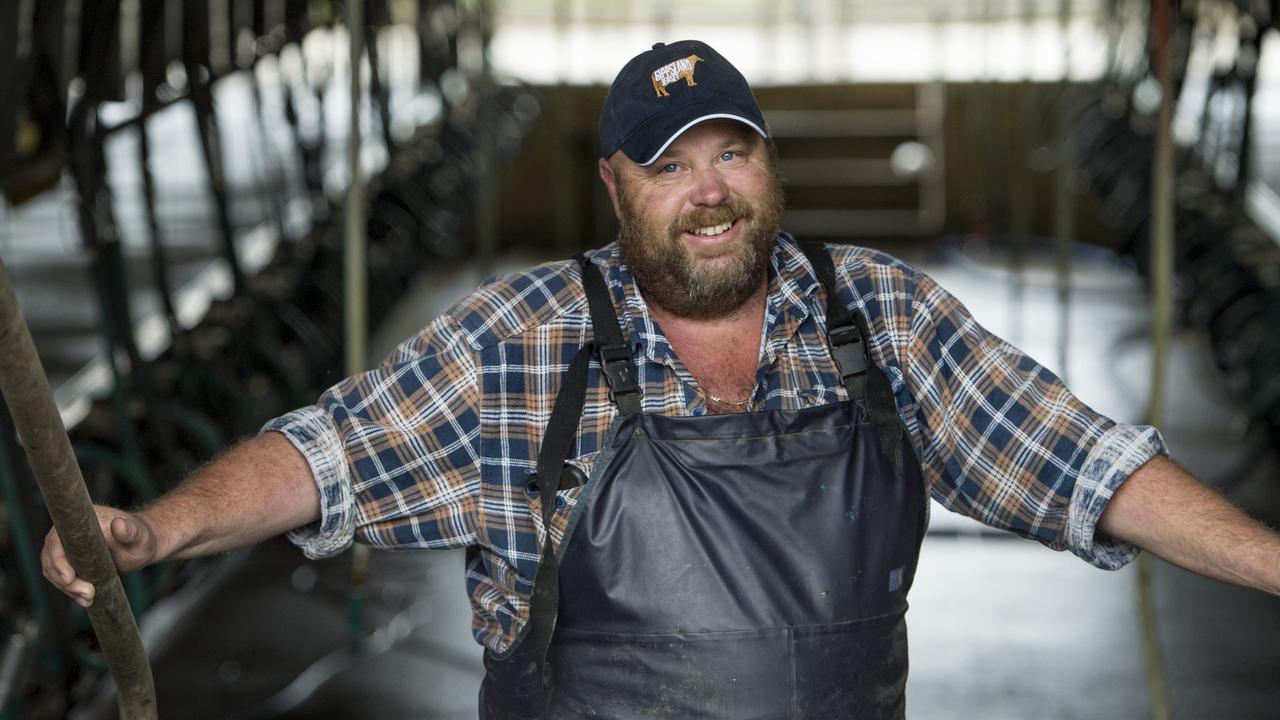
Gippsland Jersey currently has two suppliers: Steve farms 280 hectares with sharefarmer Brenton Ziero at Jindivick, with a herd of 450 Jerseys; in addition to the Wallace family of Poowong North, with 180 Jerseys.
Next month, the Wilson family from Labertouche – who have 100 Jerseys – will start supplying milk to the brand.
Steve says Jerseys are the preferred breed because of their milk’s taste, high in fat.
On average his herd produces milk that is more than 5 per cent fat (compared to a Friesian around 3.5 per cent), and protein at 3.8 per cent (a Friesian is generally in the low 3 per cent range).
“It’s a heavier, more nutrient-dense milk, with more colour in it,” Steve says.
Also Jerseys’ smaller size means they are better suited to wetter landscapes – their hoofs not damaging the soil as much as Friesians.
Steve’s annual average farm production is 2.2 million litres, with some supply going to other contract processors, because up until now Gippsland Jersey has used a factory in Melbourne, which was only able to process twice a week.
Now that Gippsland Jersey has its own Lakes Entrance factory – complete with pasteuriser, homogeniser, bottling, coolroom and storage – Steve says production (post-coronavirus) will ramp up. About 120,000 litres a month is processed into two-litre milk bottles.
Steve is the fourth generation to farm Jerseys on the Jindivick property, his great, great grandfather first farming on the same land in 1895.
“Some of the herd’s genetics dates back to the 1930s,” Steve says.
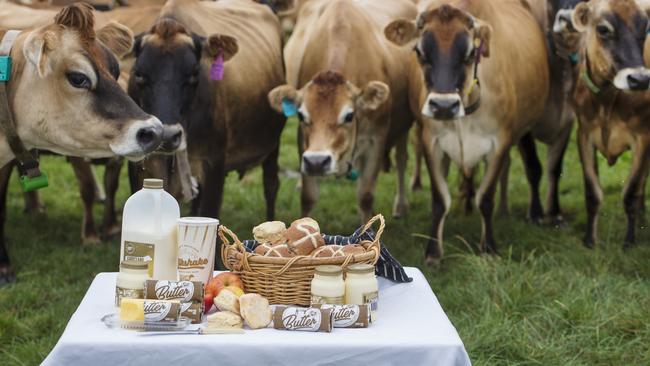
The herd calves three times a year, with Australian and overseas genetics coming from artificial insemination and mop-up bulls. The property is farmed largely conventionally but low input.
Steve opts to use minimal fertiliser, instead using irrigated effluent. Cows graze on pastures renovated to ryegrass, clover and fescue, while Steve sows annual summer crops of rape, pasja and millet on about 20 hectares each year. Bobby calves are reared with their mums and sold at bull calf sales.
Sallie says her family’s Lakes Entrance property has a herd of Angus beef cattle, not farming dairy cattle since her father passed away.
However Sallie grew up on the farm at a time when her parents ran it as a mixed dairy. In 1980 her father was the first person in Australia to gain a dairy food-safety licence to process milk.
“I remember when I was young packing milk in crates, washing buckets, going on deliveries,” she says. “We learnt how to have stamina, a work ethic, energy and passion.
“Dad would work 20 hour days, milking, then going into the factory, then changing clothes and doing deliveries.”
It is that very same factory that Sallie and Steve have renovated for their own brand, which she ultimately would like to transform into an agritourism business, celebrating Gippsland’s dairy industry, as well as other local producers.
While Sallie has energy and passion in buckets, she’s also aware of the importance of mental health, producing a yearly calendar telling farmer stories to underscore the issue, and even starting a Whatsapp group for her farmer network to boost morale.
“My parents were very solo and kept things private. Isolation is a common thread for a lot of farmers, whereas I have a big network and believe a problem shared is a problem halved,” she says. “Lucky both Steve and I are similar in that when problems happen in the business we choose not to be angry or annoyed, but we take time to digest it and set about looking for solutions.”
MILK SHAKE-UP
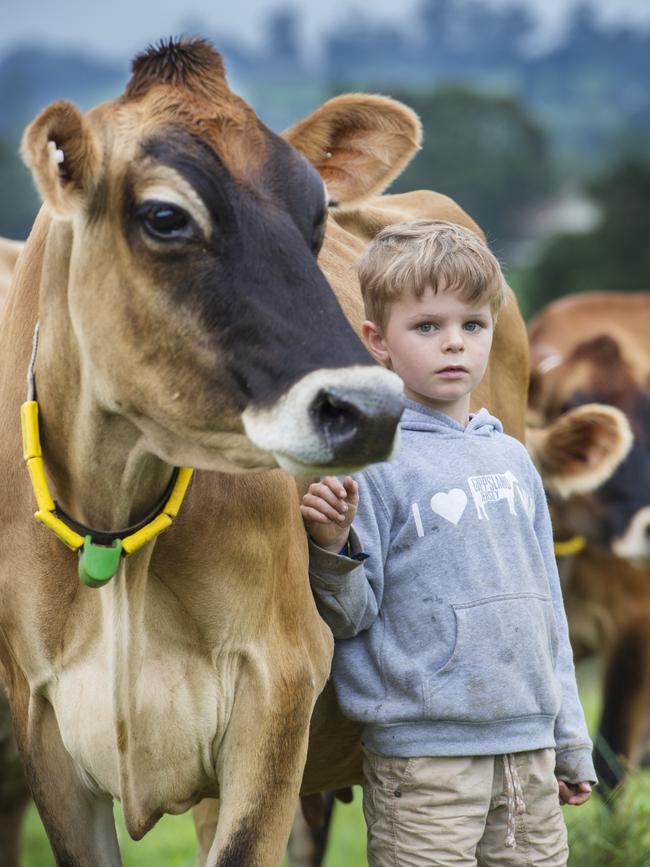
With the opening of Gippsland Jersey’s Lakes Entrance processing factory in February, the business now creates a variety of value-added products in addition to milk.
Gippsland Jersey brand butter, cream, cultured buttermilk and crème fraiche are all new to the range.
About 80 per cent of retail products are sold through independent grocers, milk bars and Woolworths.
With their cafe and restaurant market currently lost, the remainder is sold through home delivery.
Sallie says “my head almost explodes with the possibilities, the processing potential” and would in the future like to value-add ice-cream, clotted cream and flavoured milk.
FARM FILE: Gippsland Jersey
Sallie Jones and Steve Ronalds founded Gippsland Jersey in 2016. The brand sells light and full-fat milk in two-litre bottles for about $4.70 each, as well as butter in 150g log, 500g block and 1kg bulk; cream in 300ml tubs and two litres wholesale; cultured buttermilk in one-litre cartons and crème fraiche in 365g tubs, 1kg and 10kg bulk.
Where: Lakes Entrance, Gippsland
More info: gippslandjersey.com.au
MORE FARM MAGAZINE
GRAZIERS GO FROM ZERO BANK BALANCE TO RICH REWARDS

